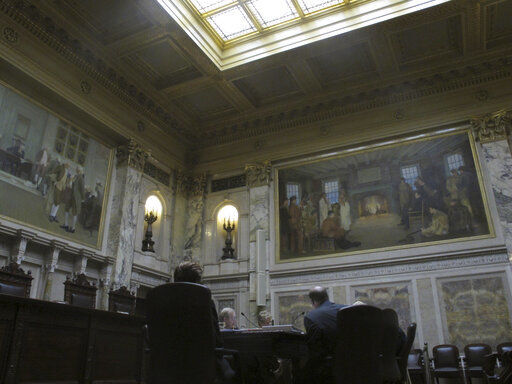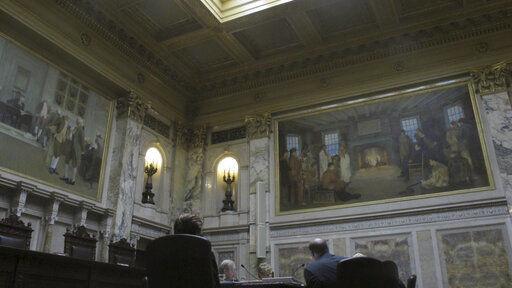
FILE – In this June 29, 2010, file photo, Wisconsin Supreme Court justices meet in the court chamber in Madison, Wis. The Court turns its attention to redistricting on Thursday Jan. 14, 2021, considering a request backed by Republicans to change its current procedures for handling cases related to the once-a-decade process of drawing new political boundaries. (AP Photo/Ryan J. Foley File)
A Republican-backed push to fast-track redistricting lawsuits in the Wisconsin Supreme Court met with skepticism during a Thursday hearing, with the court’s conservative chief justice questioning why the proposal was necessary and how the thinly staffed court could be expected to draw maps.
The state’s highest court is deciding whether to adopt a rule that would require any state lawsuits filed over the maps to start in the Wisconsin Supreme Court, rather than lower courts. The hearing is one of the earliest legal salvos in what could be a long fight over which maps finally get enacted.
Redistricting is the once-a-decade task of drawing new political boundary lines for the state Legislature and congressional districts. The Legislature, controlled by Republicans, draws the maps, but they must be signed by the governor — currently Democrat Tony Evers — to become law. When the government is divided, the courts typically must intervene to resolve disputes.
Those who support the proposed rule that would have redistricting disputes go straight to the state Supreme Court include the Republican leaders of the Legislature, Wisconsin’s five GOP members of Congress and Wisconsin Manufacturers and Commerce. They say the rule would ensure that state courts, instead of federal ones, resolve such disputes.
Opponents include both Republican and Democratic voters and former office holders, groups formed to create nonpartisan maps, law professors from Harvard University, Northwestern University and the University of Wisconsin, the League of Women Voters, the Wisconsin Association for Justice, Common Cause Wisconsin and Wisconsin Faith Voices for Justice. Nearly 2,000 comments in opposition were submitted.


